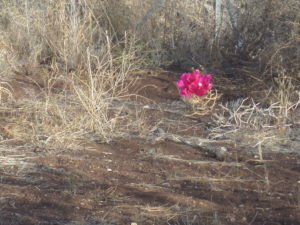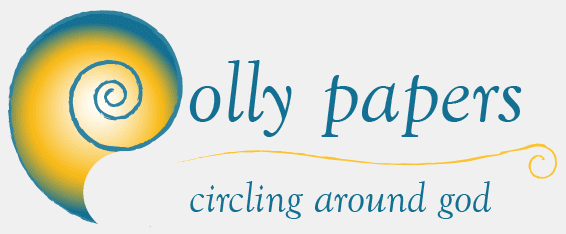I’ve heard the word “apocalypse” a lot recently. Not surprising, actually, as 2020 gave us its fair share of disasters: fires, floods, despair, destruction, earthquakes, hurricanes, mendacity, insurrection and, especially, plague. One finds all these disasters and more in apocalyptic biblical literature, most notably in the Book of Revelation. Although these texts describe the marks of an apocalyptic time, they don’t capture the full meaning of “apocalypse.”
The most literal translation of that Greek word is “uncovering”. Authors of apocalyptic texts wrote that disasters will take place first and then the veil will be torn back to reveal the true meaning of existence and the nature of humanity; in other words, a new age of community and harmony.
 This past winter I had my own personal unveiling. Cataracts were removed from both my eyes. The result of this medical adventure is astounding. I expected before the procedure that my distance vision would improve, which it did, yet had never imagined that vibrant colors would pop out with such dazzling brightness and clarity; indeed, I am noticing colors that I never remember seeing before. My eyes have been unveiled.
This past winter I had my own personal unveiling. Cataracts were removed from both my eyes. The result of this medical adventure is astounding. I expected before the procedure that my distance vision would improve, which it did, yet had never imagined that vibrant colors would pop out with such dazzling brightness and clarity; indeed, I am noticing colors that I never remember seeing before. My eyes have been unveiled.
Of all the healing stories in the Gospel accounts of Jesus’ ministry, the most common have to do with restoration of sight to the blind, leading one to believe that sight is the instrument by which we will be redeemed. In fact, the English language employs the verb, “see” frequently as a substitute for other meanings such as “understanding, perception, observation, escorting (I’ll see you out), making sure (I’ll see about it)”, which have little to do with sightedness. Not only is this linguistic laziness, it is highly exclusionary. And the truth is, blindness comes in many forms. Often the unsighted “see” (perceive) more clearly that those of us with eyes.
According to 2016 data on sightedness, almost seven and a half million adults in the United States are visually compromised. Thus, “see”, like other common words such as “walk”, “stand” and “hear” that substitute for other actions, discriminate against millions with disabilities of many kinds. According to the CDC, one in four adults in the United States is living with a disability.
I remember my father saying, when a bad word slipped out, “Watch your language, young lady!” So it’s about time, in this very different context, to watch our language and choose more inclusive words. Instead of “see” how about “perceive”; instead of vision, how about “revelation” or “idea”? Substitute “prescience” for foresight. Be creative and dream up new words for our constantly evolving English language. Maybe your word will make it into the OED someday!
Now back to our original dilemma. How to speak, without reference to sight or vision, about the unveiling that I dare to believe is now beginning, following on the chaos and catastrophes of recent years ? If apocalypse does indeed herald the dawn of a new day, what indications will there be, available and accessible to all?
Perhaps some will signify a reversal of what has been. For example, instead of division caused by ethnicity, politics, gender, religion and people of all abilities and disabilities, we’ll begin to develop understanding, honest and respectful exchange of ideas, and create bridges over troubled, turbulent waters of fear, despair, pain and grief to share common ground with each other. As a fierce believer in Jesus’ teaching, I anticipate the day when the last will be first, that is: the marginalized and immigrants; hungry, poor, homeless and abused; also the family farms and small businesses and low-wage earners in all service industries. And that the first will be last, that is: large corporations, multi-national businesses, political lobbyists and the military-industrial complex. And that the hope of an old spiritual becomes a reality: “Gonna lay down my sword and shield, gonna study war no more.”
I expect you will say, isn’t this just cockeyed optimism? The world is too complex to dream of such a day. Well, why not? And if not now, when? After all, if we have experienced the worst that human beings can visit on each other, and I believe we have, there’s no reason that we can’t expect now to experience the best.
In the aftermath of World War I, William Butler Yeats. wrote “The Second Coming”. His poem is also a response to the 1918-1919 flu pandemic. In the weeks preceding his writing of the poem, his pregnant wife Georgie Hyde-Lees caught the virus and almost died. He wrote the poem while his wife was convalescing. One hundred years later, it is as relevant now as it was then.

6 Responses
Polly,
Beautiful. Captures the times and the unveiling of what has always been – but unseen.
I remember reading about another meaning of apocalypse- waiting to be born. And revelation or being revealed. Both truly give us a realization that our True Nature is always here, simply waiting for us to awaken from the dream of separation.
In this way, we are not so much evolving towards something new but remembering
the magnificence of the Supreme Self. One of the most beautiful phrases in the Bhagavad-Gitas is,”…rest in the radiance of your Supreme Self.” And be unafraid.
Thank you for sharing your most inspiring thoughts and readings.
Trust you are all well –
Namaste
Cheers,
Elizabeth Bunker/Zucker
We are still in Langdon, NH under the snow and ice with horses, a rescue red healer dog, and an abundance of birds.
Hi, this weekend is fastidious in favor of me, for the reason that this time i am reading this enormous educational post here at my house. Glynis Bobbie Joli Dianne Ezri Enrichetta
Here’s hoping. I believe in cockeyed optimism, better than the alternative.
I love it when people come together and share ideas. Great site, continue the good work! Ardine Mischa Lesya
Hello my friend! I want to say that this article is amazing, nice written and include approximately all significant infos. I would like to see more posts like this. Constantine Warden Evelin
Cant believe this is actually happening after years of waiting! Yaaaaas Dorthy Meade Fem